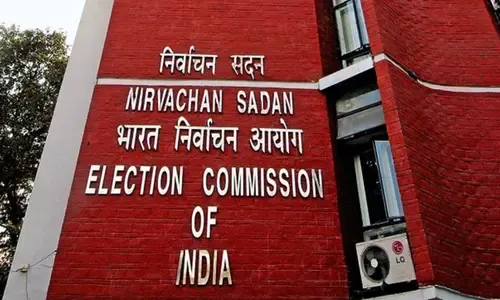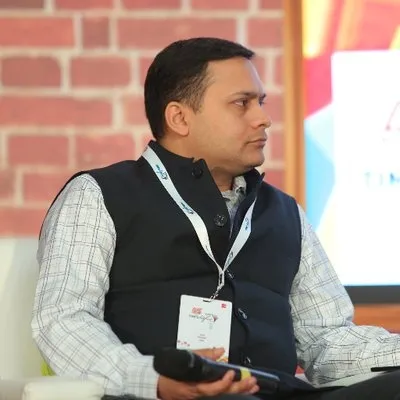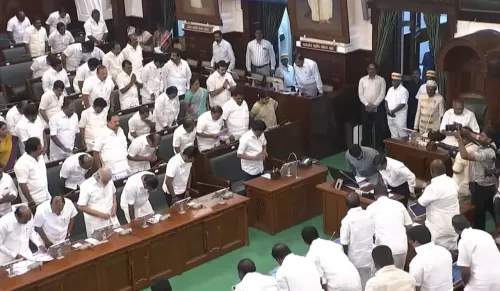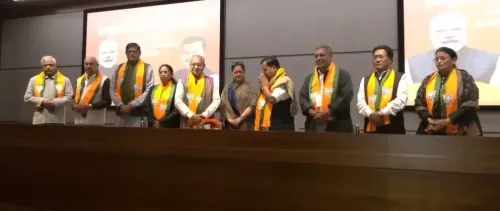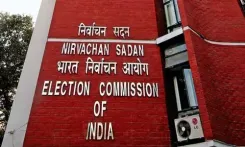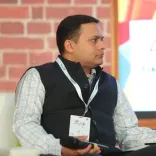Amit Malviya Critiques Congress for Trusting Hindenburg Reports
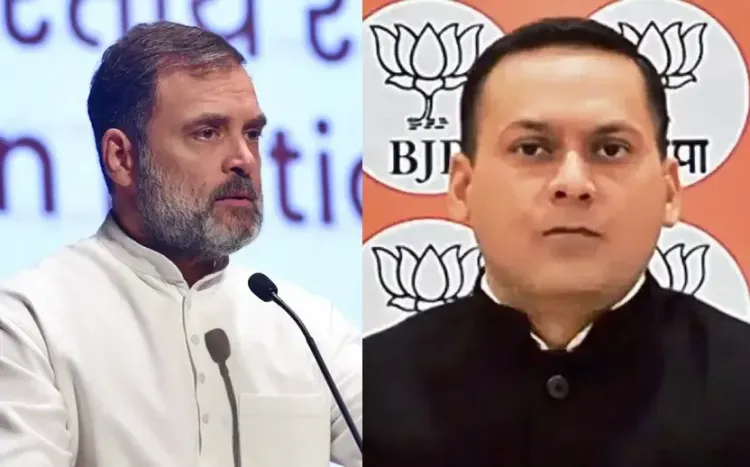
Synopsis
Key Takeaways
- The BJP was surprised by the disbandment of Hindenburg Research.
- Rahul Gandhi and the Congress party relied on Hindenburg’s reports to disrupt Parliament.
- Amit Malviya accused Congress of aligning with dubious forces.
- Nate Anderson announced the firm's disbandment without a specific reason.
- Allegations against Indian corporate figures were deemed frivolous by some.
New Delhi, Jan 16 (NationPress) The BJP expressed surprise on Thursday regarding the disbandment of Hindenburg Research and criticized Rahul Gandhi and the Congress party for relying on its reports to disrupt Parliamentary proceedings.
Amit Malviya, who oversees the BJP's National Information & Technology Department and is a member of the National Executive, stated in a social media post that the disbandment of Hindenburg Research was somewhat expected, particularly as the Trump administration transitioned into office. "As the US Department of Justice prepares to investigate the firm’s operations, it’s pertinent to consider how Rahul Gandhi and the Congress party depended on Hindenburg’s reports. Their frequent press conferences and disruptions in Parliament were based on findings from this questionable organization funded by George Soros," Malviya noted.
He further accused the Congress party of collaborating with malevolent forces. "Hindenburg and its backers targeted the Indian stock market, which has significant participation from retail investors, while the Congress party acted in line with their nefarious agenda."
Earlier, Nate Anderson, the founder of Hindenburg Research, announced the firm's disbandment, stating there was no singular reason for this decision—"no specific threat, no health crisis, and no major personal issue".
The short-seller firm had aimed at several top corporate leaders globally, including in India, often at the behest of vested interests to instigate economic instability.
In a letter on his website, Anderson remarked that the intensity of their work had cost him the opportunity to engage with many aspects of life and people who matter to him. He now regards Hindenburg as a chapter of his life, rather than a defining element.
"As I’ve conveyed to family, friends, and our team since late last year, I’ve decided to disband Hindenburg Research. Our plan has been to conclude after completing our existing pipeline of ideas. The last Ponzi cases we just finalized and are sharing with regulators mark the end of that phase today," he wrote.
Anderson emphasized that he would now focus on ensuring that everyone on their team finds a suitable next step.
"Some will establish their own research firms, which I will wholeheartedly support, even though I will not be personally involved. Others on our team will become free agents—please feel free to contact me if you need anyone who is talented, focused, and easy to collaborate with, as they all are," he stated.
In the upcoming six months, Anderson intends to create various materials and videos to "open-source every aspect of our model and how we conduct our investigations".
In India, the allegations made by Hindenburg against Indian corporate leaders were considered not just frivolous but mere cheap tactics.


